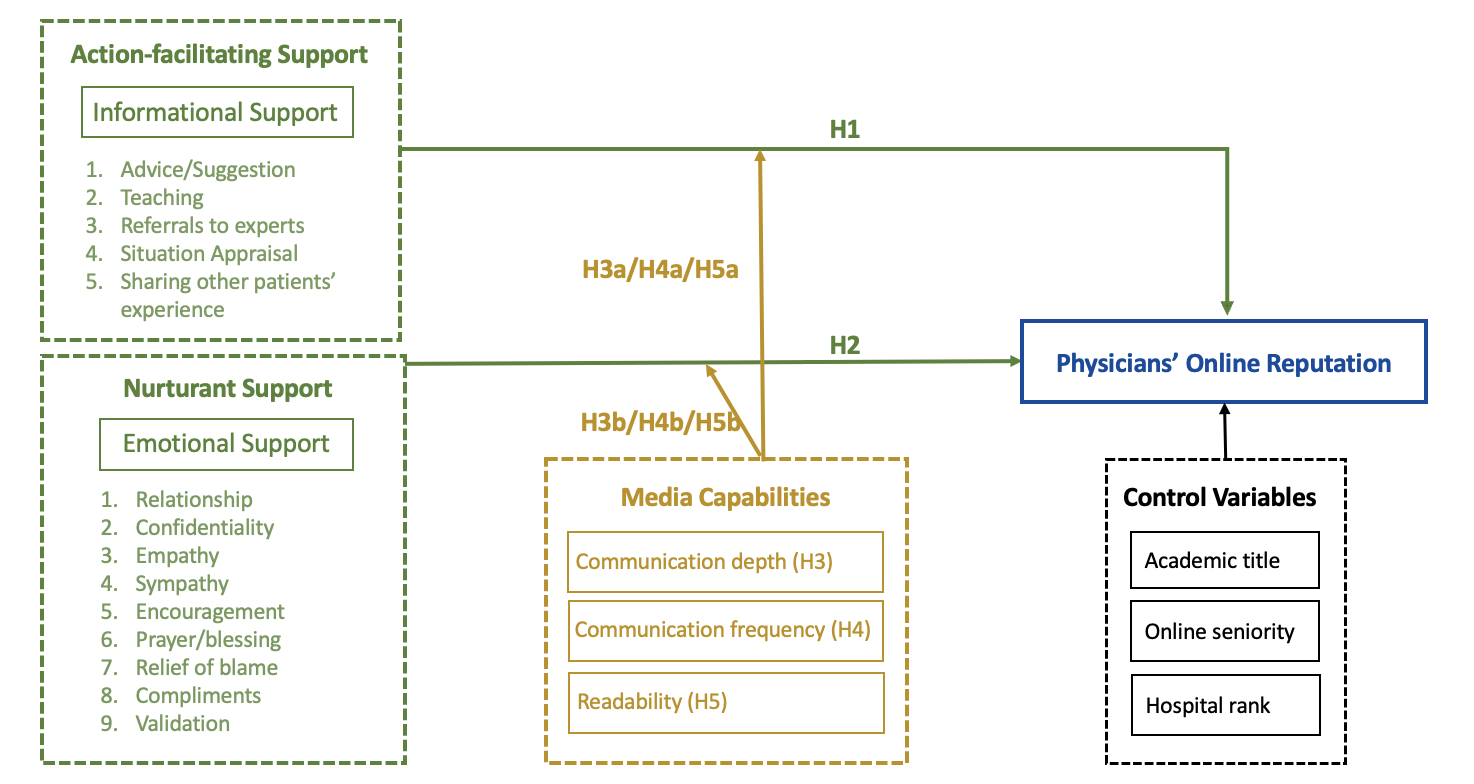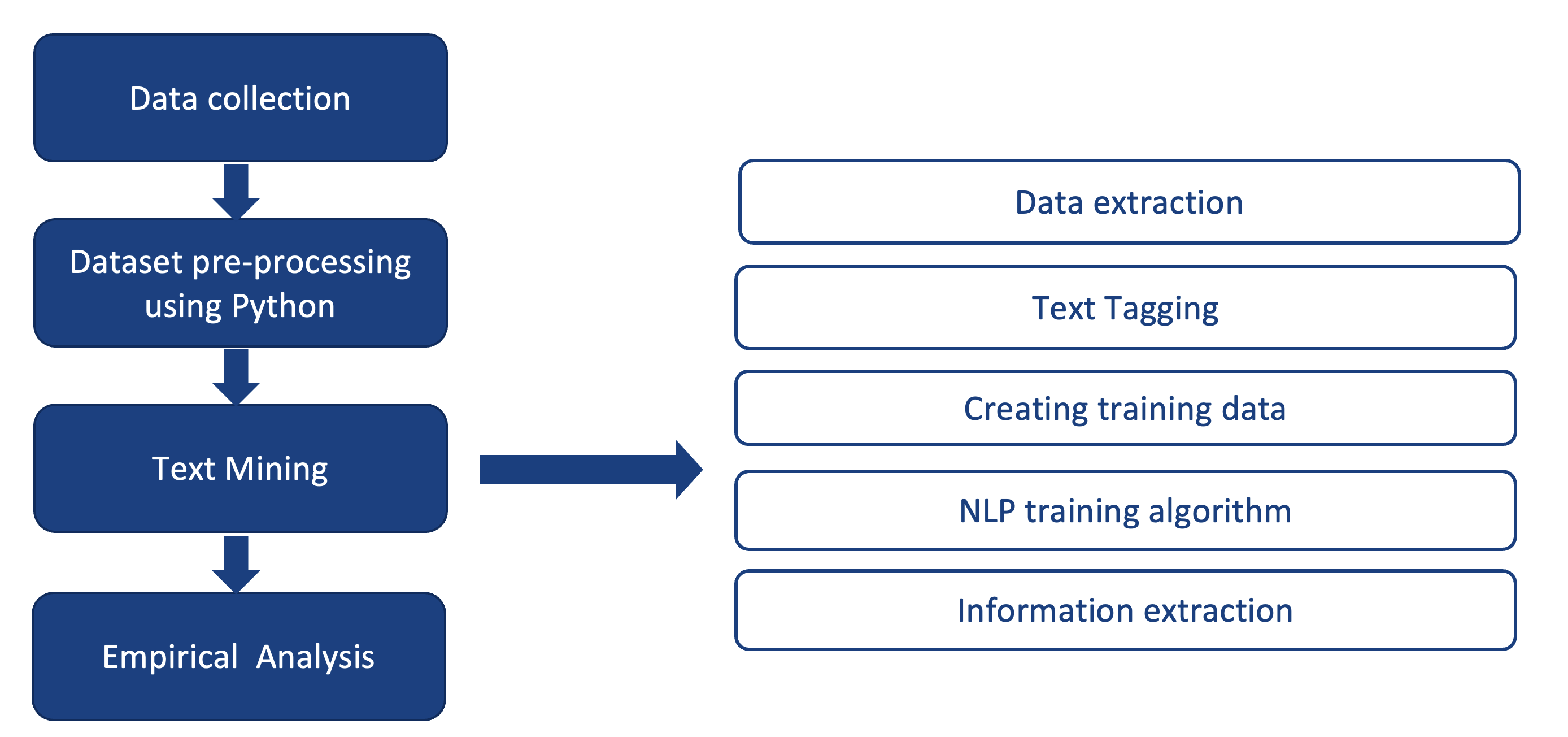Investigating the impact of social support embedded in online consultation on physicians’ online reputation: the moderating role of media capabilities
👤 Supervisors
- Dr Libo Liu (Main Supervisor)- The Univeristy of Melbourne, Melbourne, AU
📝 Publications
- Investigating the impact of social support embedded in online consultation on physicians’ online reputation: The moderating role of media capabilities
- Investigating the Impact of Computer-Mediated Social Support on Patient Empowerment in Chronic Disease Management by Using Large Language Models
🔍 Background
- Context: Online Health Consultation (OHC) platforms are gaining popularity due to COVID-19’s impact, facilitating both social and economic returns for health providers and consumers.
- Issue Addressed: Examines how the embedding of social support in online consultation impacts physicians’ online reputation and how media capabilities moderate this effect.
- Key Theories:
- Online Reputation Mechanism: Influences physicians’ economic returns and patients’ choices, with citations from recent studies.
- Social Support Types: Analyzes action-facilitating and nurturant support within OHC, focusing on problem-focused and emotion-focused coping.
📊 Research Model Development
- Research Questions:
- How do different categories of Computer-Mediated Social Support (CMSS) influence Physicians’ Online Reputation (POR)?
- How do media capabilities of OHC moderate the relationship between different types of CMSS and POR?

📊 Research Methodology
- Approach: Utilizes data from a Chinese OHC platform, employing Python for data pre-processing and text mining to extract variables from physician-patient interactions.

👥 Results & Discussions
- Findings: Highlights the significant impacts of action-facilitating and nurturant support on POR. Explores how communication depth and frequency, as well as readability, serve as moderating factors.
🧩 Implications and Limitations
- Theoretical Contributions: Enhances understanding of POR mechanisms in OHC through text mining and media synchronicity theory.
- Practical Implications: Assists physicians in developing effective communication strategies and suggests modifications to OHC platforms to support these strategies.
- Limitations: Notes the use of cross-sectional data and suggests future studies could use longitudinal data for more robust results.
🔚 Conclusion
- Summary: This research provides valuable insights into the dynamics of social support in online health consultations and its complex interaction with media capabilities affecting physicians’ online reputation.
